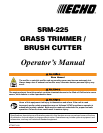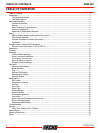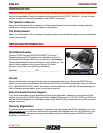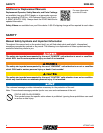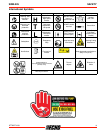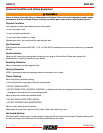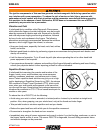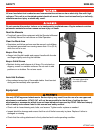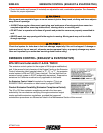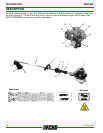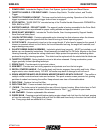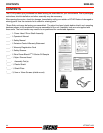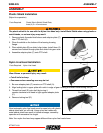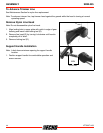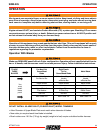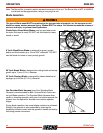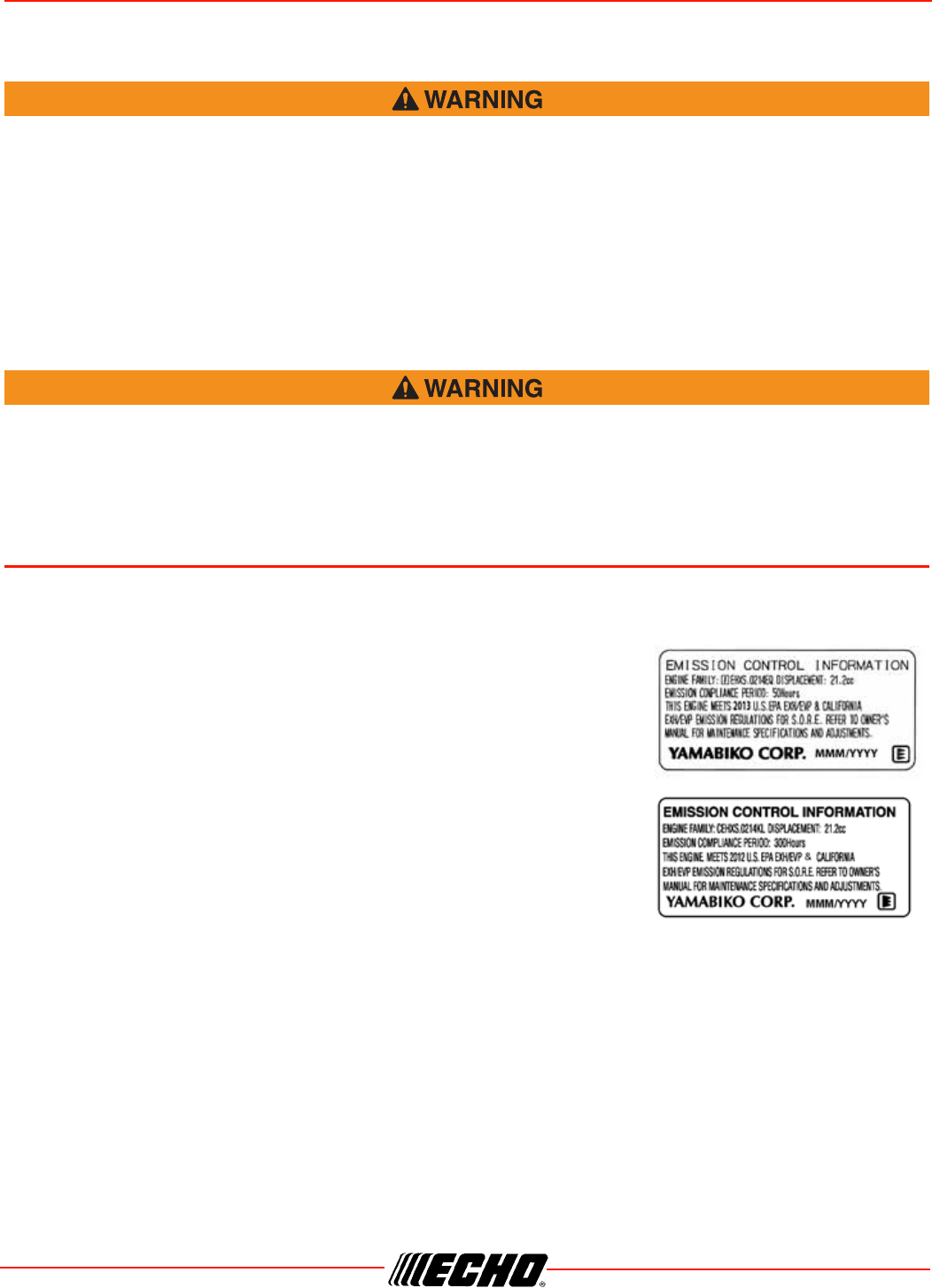
SRM-225 EMISSION CONTROL (EXHAUST & EVAPORATIVE)
© 2/2014 ECHO Inc.
X7722271109 9
• Check that handle and harness (if included) are adjusted for safe, comfortable operation. See Assembly
Section for proper adjustment.
Moving parts can amputate fingers or cause severe injuries. Keep hands, clothing and loose objects
away from all openings.
• ALWAYS stop engine, disconnect spark plug, and make sure all moving parts have come to a
complete stop before removing obstructions, clearing debris, or servicing unit.
• DO NOT start or operate unit unless all guards and protective covers are properly assembled to
unit.
• NEVER reach into any opening while the engine is running. Moving parts may not be visible
through openings.
Check fuel system for leaks due to fuel tank damage, especially if the unit is dropped. If damage or
leaks are found, do not use unit, otherwise serious personal injury or property damage may occur.
Have unit repaired by an authorized servicing dealer before using.
EMISSION CONTROL (EXHAUST & EVAPORATIVE)
EPA 2010 and Later and/or C.A.R.B. TIER III
The emission control system for the engine is EM (engine modification)
and, if the second to last character of the Engine Family on the Emission
Control Information label (sample below) is “C”, “K”, or “T”, the emission
control system is EM and TWC (3-way catalyst). The fuel tank/fuel line
emission control system is EVAP (evaporative emissions). Evaporative
emissions for California models are only applicable to fuel tanks.
An Emission Control Label is located on the engine. (This is an
EXAMPLE ONLY, information on label varies by engine FAMILY).
Product Emission Durability (Emission Compliance Period)
The 50 or 300 hour emission compliance period is the time span
selected by the manufacturer certifying the engine emissions output
meets applicable emissions regulations, provided that approved
maintenance procedures are followed as listed in the Maintenance Section of this manual.



